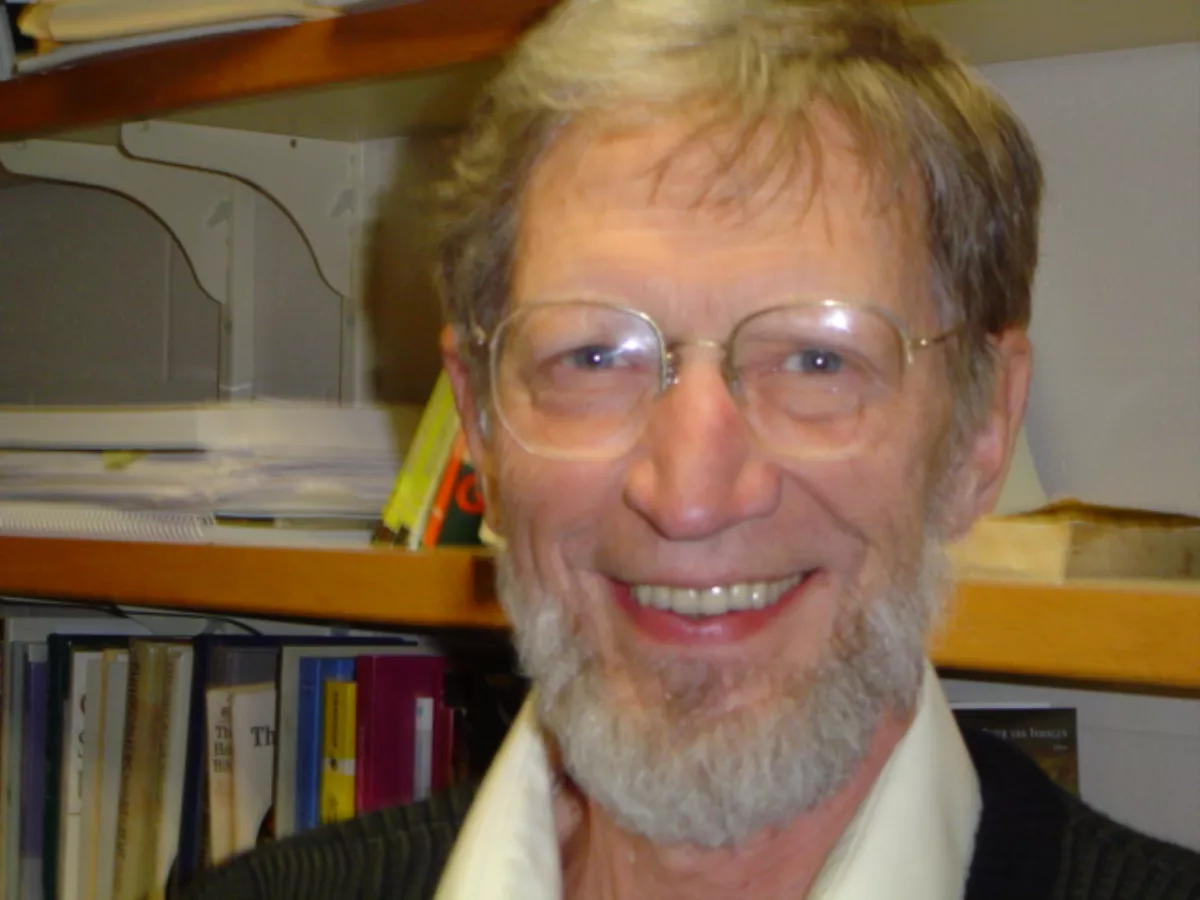 1.
1. Alvin Carl Plantinga was born on November 15,1932 and is an American analytic philosopher who works primarily in the fields of philosophy of religion, epistemology, and logic.

 1.
1. Alvin Carl Plantinga was born on November 15,1932 and is an American analytic philosopher who works primarily in the fields of philosophy of religion, epistemology, and logic.
From 1963 to 1982, Plantinga taught at Calvin University before accepting an appointment as the John A O'Brien Professor of Philosophy at the University of Notre Dame.
Alvin Plantinga later returned to Calvin University to become the inaugural holder of the Jellema Chair in Philosophy.
Alvin Plantinga has delivered the Gifford Lectures twice and was described by Time magazine as "America's leading orthodox Protestant philosopher of God".
In 2014, Alvin Plantinga was the 30th most-cited contemporary author in the Stanford Encyclopedia of Philosophy.
Alvin Plantinga taught several academic subjects at different institutions throughout his career.
At his father's advice, Alvin Plantinga skipped his last year of high school to enroll at Jamestown College in 1949 at 16.
Alvin Plantinga moved to Grand Rapids with his family and attended Calvin University for a semester.
Alvin Plantinga applied to Harvard and was awarded a scholarship.
In 1951, during Harvard's spring recess, Plantinga attended a few philosophy classes at Calvin University and was so impressed with Calvin philosophy professor William Harry Jellema that he returned in 1951 to study philosophy under him.
In 1954, Alvin Plantinga began his graduate studies at the University of Michigan where he studied under William Alston, William Frankena, and Richard Cartwright, among others.
Alvin Plantinga began his career as an instructor in the philosophy department at Yale in 1957, and then in 1958, he became a professor of philosophy at Wayne State University during its heyday as a major center for analytic philosophy.
Alvin Plantinga then spent the next 19 years at Calvin before moving to the University of Notre Dame in 1982.
Alvin Plantinga retired from the University of Notre Dame in 2010 and returned to Calvin University, where he holds the first William Harry Jellema Chair in Philosophy.
Alvin Plantinga has trained metaphysics and epistemology-focused philosophers including Michael Bergmann, Michael Rea, and Trenton Merricks.
Alvin Plantinga served as president of the American Philosophical Association, Western Division, from 1981 to 1982.
Alvin Plantinga has honorary degrees from Glasgow University, Calvin University, North Park College, the Free University of Amsterdam, Brigham Young University, and Valparaiso University.
Alvin Plantinga was named the first fellow of the center as well.
Alvin Plantinga has argued that some people can know that God exists as a basic belief, requiring no argument.
Alvin Plantinga developed this argument in two different ways: firstly, in God and Other Minds, by drawing an equivalence between the teleological argument and the common sense view that people have of other minds existing by analogy with their own minds.
Alvin Plantinga has developed a more comprehensive epistemological account of the nature of warrant which allows for the existence of God as a basic belief.
Alvin Plantinga has argued that there is no logical inconsistency between the existence of evil and the existence of an all-powerful, all-knowing, wholly good God.
Alvin Plantinga proposed a "free-will defense" in a volume edited by Max Black in 1965, which attempts to refute the logical problem of evil, the argument that the existence of evil is logically incompatible with the existence of an omnipotent, omniscient, wholly good God.
Alvin Plantinga's well-received book God, Freedom and Evil, written in 1974, gave his response to what he saw as the incomplete and uncritical view of theism's criticism of theodicy.
Alvin Plantinga's contribution stated that when the issue of a comprehensive doctrine of freedom is added to the discussion of the goodness of God and the omnipotence of God then it is not possible to exclude the presence of evil in the world after introducing freedom into the discussion.
Alvin Plantinga's externalist epistemology, called "proper functionalism", is a form of epistemological reliabilism.
Alvin Plantinga discusses his view of Reformed epistemology and proper functionalism in a three-volume series.
Alvin Plantinga explains his argument for proper function with reference to a "design plan", as well as an environment in which one's cognitive equipment is optimal for use.
Alvin Plantinga asserts that the design plan does not require a designer: "it is perhaps possible that evolution has somehow furnished us with our design plans", but the paradigm case of a design plan is like a technological product designed by a human being.
Alvin Plantinga discusses his evolutionary argument against naturalism in the later chapters of Warrant and Proper Function.
Alvin Plantinga has expressed a modal logic version of the ontological argument in which he uses modal logic to develop, in a more rigorous and formal way, Norman Malcolm's and Charles Hartshorne's modal ontological arguments.
Alvin Plantinga criticized Malcolm's and Hartshorne's arguments, and offered an alternative.
Alvin Plantinga argued that, if Malcolm does prove the necessary existence of the greatest possible being, it follows that there is a being which exists in all worlds whose greatness in some worlds is not surpassed.
Alvin Plantinga then restated Malcolm's argument, using the concept of "maximal greatness".
Alvin Plantinga argued that it is possible for a being with maximal greatness to exist, so a being with maximal greatness exists in a possible world.
Alvin Plantinga argued that, although the first premise is not rationally established, it is not contrary to reason.
Martin proposed parodies of the argument, suggesting that the existence of anything can be demonstrated with Alvin Plantinga's argument, provided it is defined as perfect or special in every possible world.
Alvin Plantinga said in an interview on the relationship between science and religion that:.
Alvin Plantinga was a Fellow of the pro-intelligent design International Society for Complexity, Information, and Design, and has presented at a number of intelligent design conferences.